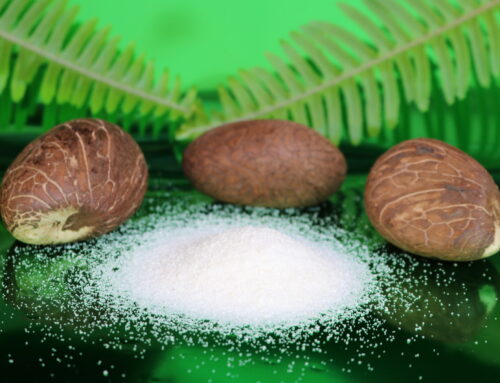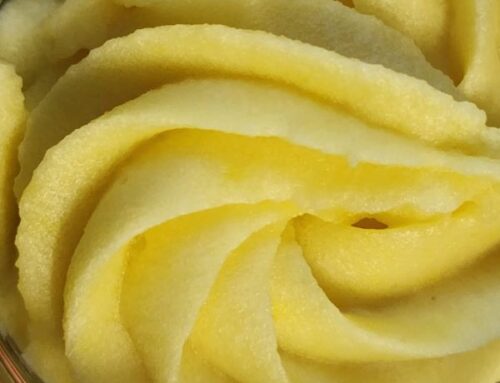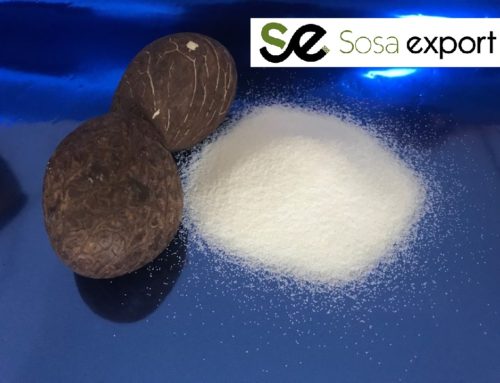«Many personal hygiene products such as shower gels, facial scrubs and toothpastes contain plastic microspheres to perform cleaning processes. However, through sewage systems these tiny particles end up in the sea and can cause serious damage to its inhabitants. »
Tiny but very harmful Scientists have shown that microbeads are able to enter the food chain of many animals (including humans), but since they are not at all «digestible» and because of their size, they often accumulate in the digestive systems of fish, birds and marine mammals.
All types of plastics have been found within the digestive tracts of turtles, seabirds and whales, but it seems that our plastic garbage when it ends up in the oceans can also affect the tiniest plankton, which is the food base of many more marine creatures. big.
An example of this is copepods which feed on certain species of algae. Before using them, they use chemical and tactile receptors to discriminate what they can eat and discard, and researchers have been able to film one of these tiny specimens by eating microbeads from cosmetics.
Following this regrettable experience, they have concluded that the problem is that the volumes of plastic garbage are so huge that they are having a profound impact on wildlife and ecosystems.
It is estimated that eight million tons of plastic are dumped into the oceans each year causing serious problems to those who ingest them or become entangled in bags and nets, but in addition these materials release potentially toxic chemicals, so when feeding them, they end by poisoning.
Prohibition
Canada has announced that it intends to veto the use of microbeads in personal care products and California has since last year been the ninth US state to ban the use of these tiny spheres.
In Europe, cosmetics companies are being recommended to stop using microbeads in their personal care products for exfoliating and cleansing purposes, which they seem to have committed from 2020.
Instead, companies should opt for the use of natural exfoliating scrubs as alternatives to replace microbeads, for which there are a number of proposals, including that of decanting seeds and / or biodegradable particles.
The recommendation is to suspend the use of all types of synthetic fibers and solid plastic particles which are not biodegradable in the marine environment, in the cosmetic products that come on the market from 2020.
Cosmetics Europe and its members will be addressing public concerns and are committed to work under a new, science-based approach in order to find a viable alternative to matter of plastic micro particles. »
Deadlines that do not convince
The news was received with caution by the ecological groups, fervent advocates of the change and the abolition of the microbeads; many warned that the 2020 deadline seems far away.
The problem is that these tiny drops of plastics are so small that they pass through the various processes of water filtration and end up in the sea; it has been found that plastic fragments already account for a significant proportion of the sand on beaches around the world.
Scientists also found a new type of sedimentary rock that is starting to form from the mix of various discarded plastics, which are bonded with sand and other materials on beaches and shores.
Although there are places where human beings have not been able to reach because it is impossible to submerge because of the very high pressures (as in the case of the Marianas Trench), in research with autonomous immersion equipment it has been proven that plastic wastes are present in areas of great depth.
Even in the salt
The impact of microbeads on oceanic waters around the world is so great that it has been proven that there are traces of plastics in table salt of marine origin in China, but what is most worrying is that the presence of these particles have already reached brackish lakes and wells, where significant quantities were found.
Shi Huahong of the Normal University of East China in Shanghai and his colleagues discovered between 550 and 681 microplastic particles per kilogram of table salt that originated in the ocean.
Alarmed at this finding, they argue that «microbeads are a real threat to organisms because of their small size and their capacity to absorb persistent organic pollutants»
Alternative for industrie cosmetics
Phytelephas Aequatorialis Seed Powder. Phytelephas aequatorialis is a palm of the family of arecáceas originating in Ecuador, its seed is used to make this natural scrub. Appearance: Grain or white powder. Other names: Tagua, vegetable ivory, vegetable ivory, ivory nut. Attributes: 100% natural, biodegradable, harvested in a sustainable way.






